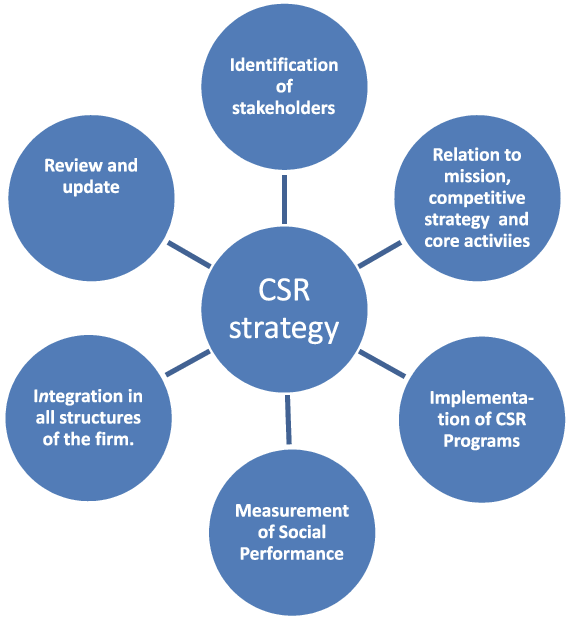Do you want your business to be successful? If so, it is vital that you implement a Corporate Social Responsibility (CSR) strategy. A CSR strategy provides an opportunity to win over both customers and employees alike.
A corporate social responsibility (CSR) strategy is a comprehensive approach that businesses can use in order to improve not only their brand image, but also their public perception. This can be done by social welfare activities and choosing socially responsible suppliers.
Corporate Social Responsibility (CSR) is becoming an important topic in today’s world. Why? Because it’s more than just a business strategy — it can be an integral part of your business growth and profitability. CSR is a way for companies to tap into their power to contribute towards making the world a better place — the benefits are mutual, offering both parties with something valuable in return.
What is CSR?
Corporate social responsibility (CSR) refers to a company’s commitment to behave ethically and contribute to economic development while improving the quality of life of the communities in which they operate.
It’s an important part of any business, but it’s often misunderstood. Some people think it’s just about giving money or volunteering your time. But CSR is about doing business in a way that benefits everyone — including your customers, employees and shareholders — by creating value for everyone involved.
So what does a good CSR program look like? There are no set rules — every company has a unique set of values and goals. But most companies that have strong CSR have three main things in common:
- They’re transparent about their intentions and activities
- They think about the impact of their decisions on people other than themselves
- They proactively look for ways to improve their performance
Corporate social responsibility (CSR) is the range of activities undertaken by a business that go beyond normal commercial considerations and contribute to the social and environmental well-being of society.
These activities are generally voluntary and often involve making a contribution to society, for example through philanthropy, volunteer work or sponsorship of charitable causes.
A company’s CSR strategy will typically include some combination of:
- Improving working conditions and pay levels for employees;
- Supporting communities through corporate charity;
- Working with suppliers to help them meet ethical standards;
- Making an active contribution to the local community or environment;
- Setting up an employee volunteering scheme;
- Promoting fair trade practices in supply chains;
How to Get Your Employee on Board
- Make sure your business and its employees embrace the initiative.
- The first step to getting your employees on board with the initiative is to make sure they understand why it’s happening.
- The second step is to show them how it will benefit them personally.
- The third step is to ensure that there are no obstacles standing in their way.
For example, if you’re going to be instituting an aggressive goal-setting process, make sure you have the resources in place to help them reach those goals. If you’re asking them to work longer hours, make sure they understand what will happen if they don’t produce more results during those longer hours.
If you’re asking them to take on new responsibilities outside of their job descriptions, make sure they know what they’ll get out of doing those things — and how much time they’ll need to spend on them.
The most important thing to consider is what your goals are. Yes, you want to make lots of money, but how much? What does it mean for you? You also want to be able to retire at a certain age. How much do you need in order to do that?
Once you have your goals in mind, it’s time to start thinking about how much money you need to make each month in order to achieve them. This will help put things in perspective and allow you to come up with an actionable plan for achieving your financial goals.
Set Clear, Measurable Goals
- Before we dive into the details of how much money you need to make per month, let’s talk about setting clear goals first.
- The first step is figuring out what kind of lifestyle you want and where your finances stand now.
- You’ll need to figure out what kind of home or apartment (or both) you’re looking for as well as any other expenses that go along with that lifestyle (car payments, student loans). These expenses can vary depending on your budget and priorities — whether or not they’re important depends on who you are and what makes sense for your situation!
- Assign a team member to be in charge of reporting on the results of your CSR initiative.
- Section: Don’t forget to measure and communicate progress.
- Measure and communicate progress.
It’s important to measure your progress so that you can get an idea of how much work is left. I suggest you check in on your goals every week or two.
READ MORE: What Do Delta 8 Gummies Do? What to Expect When You Take Them
